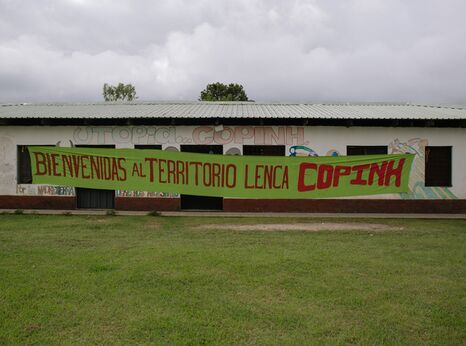Land defenders threatened

COPINH members have been targeted with threats and harassment for years in connection with their work. Berta Cáceres, leader and co-founder of COPINH, was shot dead on 2 March 2016 in her home in the town of La Esperanza, in the province of Intibucá. After her death, on 5 March 2016, the Inter-American Commission requested precautionary measures (Precautionary Measure 112/16) in favour of members of the Civic Council of Popular Indigenous Organizations of Honduras (COPINH), relatives of Berta Cáceres and Mexican defender Gustavo Castro on the grounds of the risks posed by their work defending human rights, the environment and natural resources and their increased vulnerability after the killing of Berta Caceres. Based on these measures, the Honduran Protection System for human rights defenders must enforce security measures to ensure the safety of members of COPINH, and their ability to carry out activities as human rights defenders without reprisals.
Despite this, COPINH has continued to report attacks. Most recently, COPINH publicly denounced attacks against its members and restrictions to resume their work in the context of COVID-19, including the detention on 12 May 2020 of José Trochez, member of COPINH’s General Coordination, by the army while he was doing humanitarian work.
On 15 June, members of COPINH received information warning them about an imminent attack against its members and facilities. Following the incident, COPINH requested further protection from the Protection Mechanism. COPINH also reported that on 21 June, a group of around 60 people showed up at their “Utopia” facility threatening to take it over. The Protection Mechanism sent two police cars in response. Due to the fear of further attacks, COPINH has requested ongoing protection that, according to the organization, has not been provided so far.
In Lenca territory, according to COPINH, the people of Río Blanco continue to suffer the destruction of their crops, along with other acts of harassment and threats. COPINH told Amnesty International about these types of attacks in 2019. In July 2019, the food crops of at least 25 families of the Río Blanco community, Intibucá Department, were intentionally destroyed. In April and May 2019, Rosalina Domínguez, finance coordinator for the Indigenous Council of Río Blanco, her four sons, and two other members of her community faced verbal death threats on their way to work by a group of at least seven people, one of them armed.
Amnesty International has also received information regarding the risks faced by human rights defenders in Honduras more broadly in the context of COVID-19. Since Honduras began to take measures to contain the spread of COVID-19, Amnesty International has learned of situations that put the work of human rights defenders in the country at risk, including the withdrawal of protection schemes as a result of executive decrees PCM-021, PCM-02, PCM-026 and PCM-02.. On 7 April, Amnesty International published a document on the importance of human rights defenders during the COVID-19 pandemic, whose role is essential to guarantee human rights in these challenging times, and therefore, must continue in the current situation, with appropriate modifications.
Over the last three years Amnesty International has spoken out on many occasions regarding threats, intimidation, harassment and the killings of activists in Honduras, which remains one of the deadliest countries in the world to be a human rights defender.